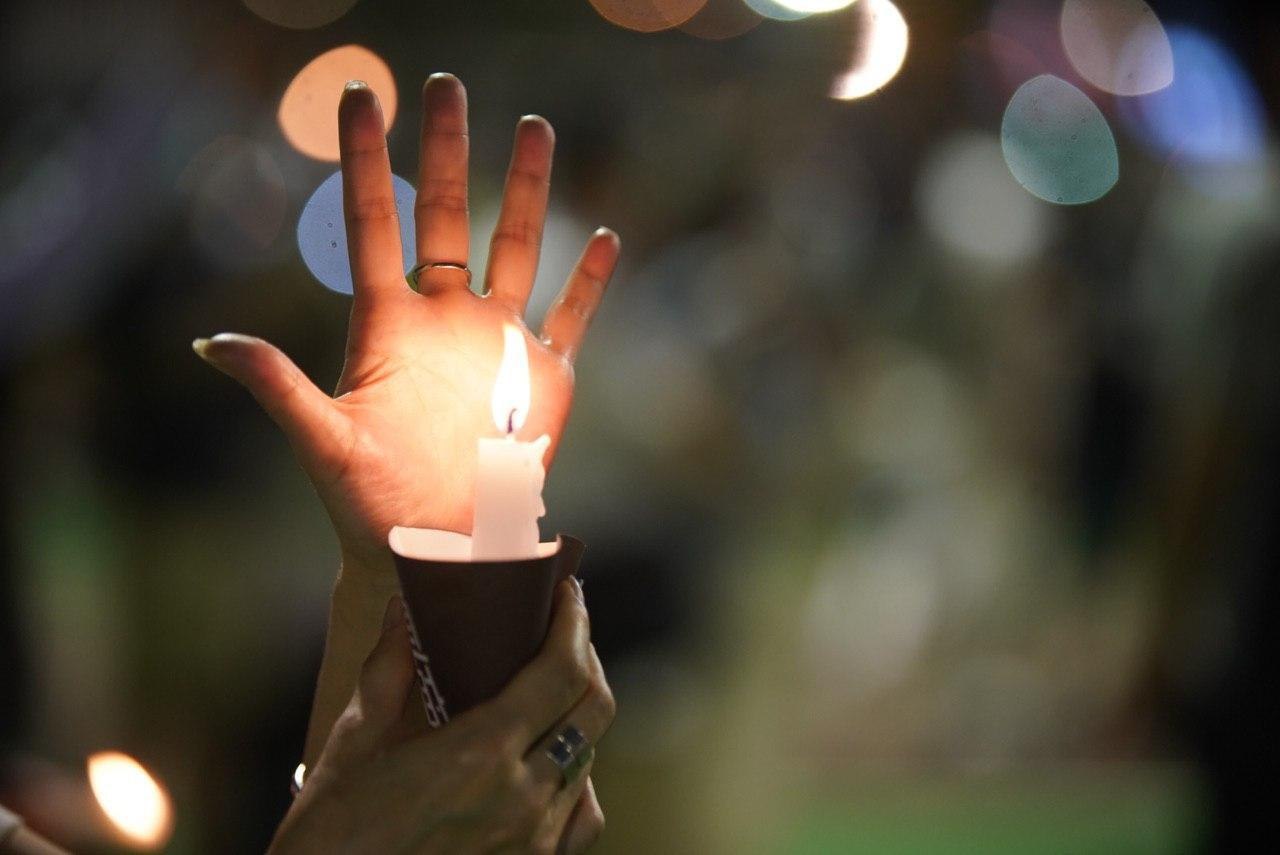The conviction of Hong Kong media tycoon Jimmy Lai over last year’s banned Tiananmen Massacre vigil would infringe his rights of freedom of assembly and of speech, his lawyer argued on Thursday.
Lai, accused of inciting others to take part in last year’s vigil, is on trial in District Court along with the vice-chairperson of Hong Kong Alliance in Support of Patriotic Democratic Movements of China Chow Hang-tung and activist Gwyneth Ho.

Representing Lai, Senior Counsel Robert Pang presented his closing arguments before Judge Amanda Woodcock.
Answering the prosecution argument that Lai and the others were not entitled to challenge the police ban during the present court case, Pang said it was up to the court to undertake “the proportionality exercise” in order to “ensure the rights of ordinary citizens were protected.” This was because Lai and other people who wished to attend the vigil in Victoria Park could not appeal the police ban using the appeal mechanism.
Responding to prosecution arguments that the vigil had to be banned because of the Covid-19 pandemic, he said that ” the administration did not consider the threat was so serious that the MTR should shut down.”
Arguing that the court should consider the situation as a whole, Pang said the government had decided to allow karaoke, bath houses, and mahjong parlours to reopen around the time police decided to ban the vigil.
“So if we are talking about a balancing exercise, is the right to karaoke, the right to massage… do they stand on the same footing, as commemorating the events that happened 31 years ago?” said Pang.
‘No evidence whatsoever’
The defence lawyer argued that the prosecution had not proven the case that the media tycoon incited, or intended to incite, other people to take part in the banned vigil.

The prosecution said Lai committed the act, based on a 15-minute video, when he met members of the Alliance at the Water Fountain Plaza outside Victoria Park at around 6:30 p.m. on June 4, 2020.
Pang cited several cases in the past and said they showed that an incitement charge would “suggest some positive act of a definitive nature, telling someone to do something,” and that this element was lacking in Lai’s case.
The senior counsel argued that the Alliance’s plan after the police ban “as publicly disseminated, was for an online rally,” and that there were no calls for people to go Victoria Park in any of the Alliance’s publicly available material.
” There is no evidence whatsoever that [Lai] knew of any other plan,” said Pang.
The senior counsel also noted that Albert Ho, former vice-chairperson of the Alliance, had said in a meeting that the Alliance “decided to take an innovative approach,” and had specifically said that it was not necessary for people to go to Victoria Park.
Pang said that while Lai had met Alliance members at the plaza, he “said nothing except an incitement to [Lee Cheuk-yan] to light the candle.” Pang argued that Lai’s support for the Alliance with his presence was not an incitement to “unknown others to commit a specific criminal offence.”
Lee, the former chief of the Alliance chief which organised the annual vigil, has pleaded guilty in the case and is awaiting sentencing.

Pang said that even if Lai might reasonably foresee that others would enter Victoria Park at the same time as the Hong Kong Alliance, it might be a case of “monkey see, monkey do.” It was not known whether all people there had a common purpose.
Challenging the police ban
The senior counsel argued that the police letter of objection to the event was a “disproportionate restriction” of freedom of assembly and it was the duty of the police “to facilitate, not to prohibit public assemblies.”
Police Superintendent Josephine Chow, who made the decision to ban the event, could have imposed conditions on the Alliance if the vigil had gone ahead and could have sought medical advice on how the Covid risks could be minimised.
The police officer also had not said whether she had taken into account the significant cultural and historical importance of the Tiananmen Massacre vigil in Hong Kong.
The Tiananmen Massacre occurred on June 4, 1989 ending months of student-led demonstrations in China. It is estimated that hundreds, perhaps thousands, of people died when the People’s Liberation Army was deployed to crack down on protesters in Beijing.
The court session was adjourned to Friday morning after Pang completed his final argument. Lawyers for Chow Hang-tung and Ho will present their final submissions then. Lai is currently serving prison sentences for other protest-related charges.
Support HKFP | Policies & Ethics | Error/typo? | Contact Us | Newsletter | Transparency & Annual Report | Apps
Help safeguard press freedom & keep HKFP free for all readers by supporting our team

LATEST FROM HKFP
HKFP has an impartial stance, transparent funding, and balanced coverage guided by an Ethics Code and Corrections Policy.
Support press freedom & help us surpass 1,000 monthly Patrons: 100% independent, governed by an ethics code & not-for-profit.










